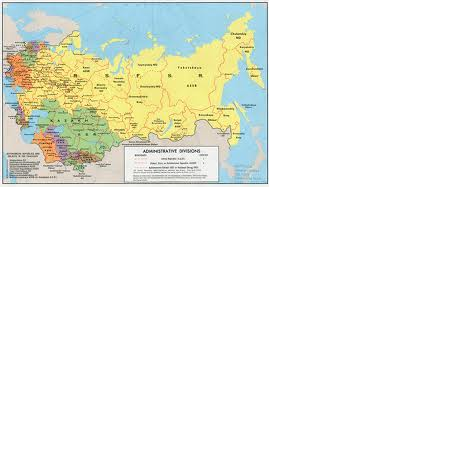Sign up for FlowVella
Sign up with FacebookAlready have an account? Sign in now
By registering you are agreeing to our
Terms of Service
Loading Flow


Significance of the Battle of Stalingrad and its impact on Germany
Soviet Union
The Battle of Stalingrad was the bitter siege that had been sustained in and around that Russian city from August of 1942 to February of 1943. The defeat of the German Sixth Army at Stalingrad not only dealt a crippling blow to Hitler's campaign in the East but also marked the strategic turning point of the Second World War, and has come to be recognized as one of the greatest military debacles of all time. Over the years, the terrible fighting at Stalingrad has also come to symbolize the senseless sacrifice of human life to individual hubris and political whim. In mid-November of 1942, a surprise pincer attack by two Russian armies cut off the Gerrnan Sixth Arrny, which was then locked in a bloody struggle for the city of Stalingrad. Trapped in a Kessel, or cauldron, an egg-shaped line of defense thirty miles wide and twenty miles deep, the Sixth Army, which was under the command of General Friedrich Paulus, was ordered by Hitler to hold its ground rather than retreat west to join the vanguard of the German forces. In a matter of two months, from late November of 1942 until the end of January of 1943, a quarter of a million German soldiers, a thousand German panzers, eighteen hundred pieces of artillery, an entire air force of transport planes, and untold quantities of military supplies were obliterated by the combined forces of the Soviet Army and the Russian winter.

The Battle of Stalingrad was the bitter siege that had been sustained in and around that Russian city from August of 1942 to February of 1943. The defeat of the German Sixth Army at Stalingrad not only dealt a crippling blow to Hitler's campaign in the East but also marked the strategic turning point of the Second World War, and has come to be recognized as one of the greatest military debacles of all time. Over the years, the terrible fighting at Stalingrad has also come to symbolize the senseless sacrifice of human life to individual hubris and political whim. In mid-November of 1942, a surprise pincer attack by two Russian armies cut off the Gerrnan Sixth Arrny, which was then locked in a bloody struggle for the city of Stalingrad. Trapped in a Kessel, or cauldron, an egg-shaped line of defense thirty miles wide and twenty miles deep, the Sixth Army, which was under the command of General Friedrich Paulus, was ordered by Hitler to hold its ground rather than retreat west to join the vanguard of the German forces. In a matter of two months, from late November of 1942 until the end of January of 1943, a quarter of a million German soldiers, a thousand German panzers, eighteen hundred pieces of artillery, an entire air force of transport planes, and untold quantities of military supplies were obliterated by the combined forces of the Soviet Army and the Russian winter.
The Battle of Stalingrad was the bitter siege that had been sustained in and around that Russian city from August of 1942 to February of 1943. The defeat of the German Sixth Army at Stalingrad not only dealt a crippling blow to Hitler's campaign in the East but also marked the strategic turning point of the Second World War, and has come to be recognized as one of the greatest military debacles of all time. Over the years, the terrible fighting at Stalingrad has also come to symbolize the senseless sacrifice of human life to individual hubris and political whim. In mid-November of 1942, a surprise pincer attack by two Russian armies cut off the Gerrnan Sixth Arrny, which was then locked in a bloody struggle for the city of Stalingrad. Trapped in a Kessel, or cauldron, an egg-shaped line of defense thirty miles wide and twenty miles deep, the Sixth Army, which was under the command of General Friedrich Paulus, was ordered by Hitler to hold its ground rather than retreat west to join the vanguard of the German forces. In a matter of two months, from late November of 1942 until the end of January of 1943, a quarter of a million German soldiers, a thousand German panzers, eighteen hundred pieces of artillery, an entire air force of transport planes, and untold quantities of military supplies were obliterated by the combined forces of the Soviet Army and the Russian winter.
The Battle of Stalingrad was the bitter siege that had been sustained in and around that Russian city from August of 1942 to February of 1943. The defeat of the German Sixth Army at Stalingrad not only dealt a crippling blow to Hitler's campaign in the East but also marked the strategic turning point of the Second World War, and has come to be recognized as one of the greatest military debacles of all time. Over the years, the terrible fighting at Stalingrad has also come to symbolize the senseless sacrifice of human life to individual hubris and political whim. In mid-November of 1942, a surprise pincer attack by two Russian armies cut off the Gerrnan Sixth Arrny, which was then locked in a bloody struggle for the city of Stalingrad. Trapped in a Kessel, or cauldron, an egg-shaped line of defense thirty miles wide and twenty miles deep, the Sixth Army, which was under the command of General Friedrich Paulus, was ordered by Hitler to hold its ground rather than retreat west to join the vanguard of the German forces. In a matter of two months, from late November of 1942 until the end of January of 1943, a quarter of a million German soldiers, a thousand German panzers, eighteen hundred pieces of artillery, an entire air force of transport planes, and untold quantities of military supplies were obliterated by the combined forces of the Soviet Army and the Russian winter.
The Battle of Stalingrad was the bitter siege that had been sustained in and around that Russian city from August of 1942 to February of 1943. The defeat of the German Sixth Army at Stalingrad not only dealt a crippling blow to Hitler's campaign in the East but also marked the strategic turning point of the Second World War, and has come to be recognized as one of the greatest military debacles of all time. Over the years, the terrible fighting at Stalingrad has also come to symbolize the senseless sacrifice of human life to individual hubris and political whim. In mid-November of 1942, a surprise pincer attack by two Russian armies cut off the Gerrnan Sixth Arrny, which was then locked in a bloody struggle for the city of Stalingrad. Trapped in a Kessel, or cauldron, an egg-shaped line of defense thirty miles wide and twenty miles deep, the Sixth Army, which was under the command of General Friedrich Paulus, was ordered by Hitler to hold its ground rather than retreat west to join the vanguard of the German forces. In a matter of two months, from late November of 1942 until the end of January of 1943, a quarter of a million German soldiers, a thousand German panzers, eighteen hundred pieces of artillery, an entire air force of transport planes, and untold quantities of military supplies were obliterated by the combined forces of the Soviet Army and the Russian winter.